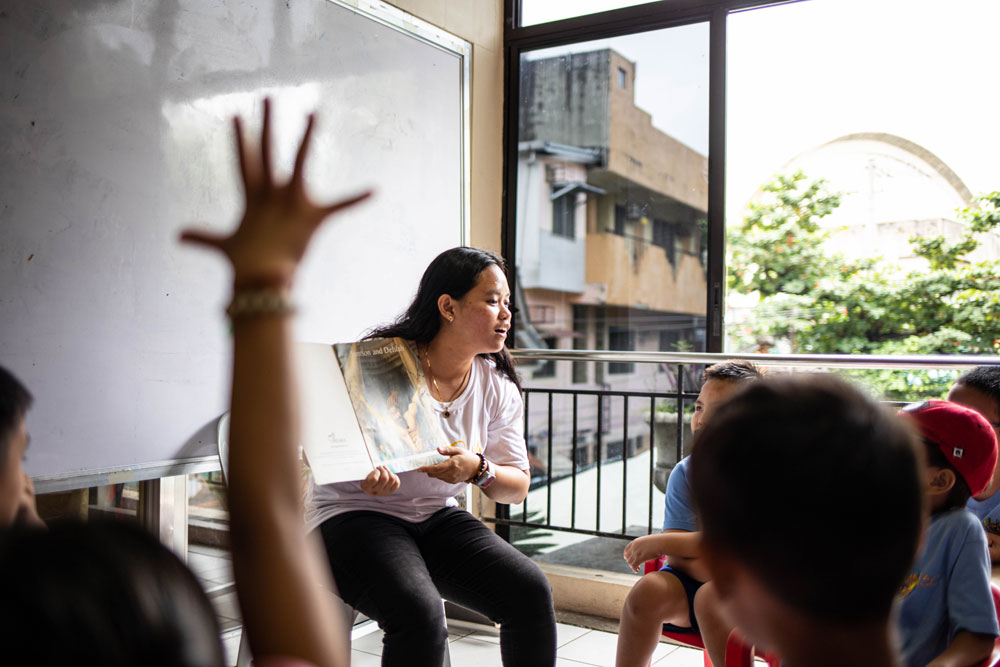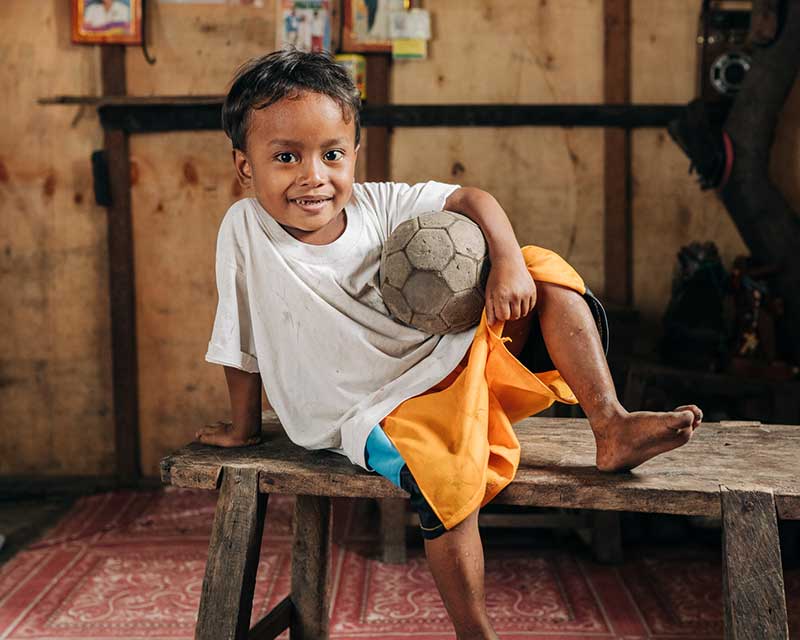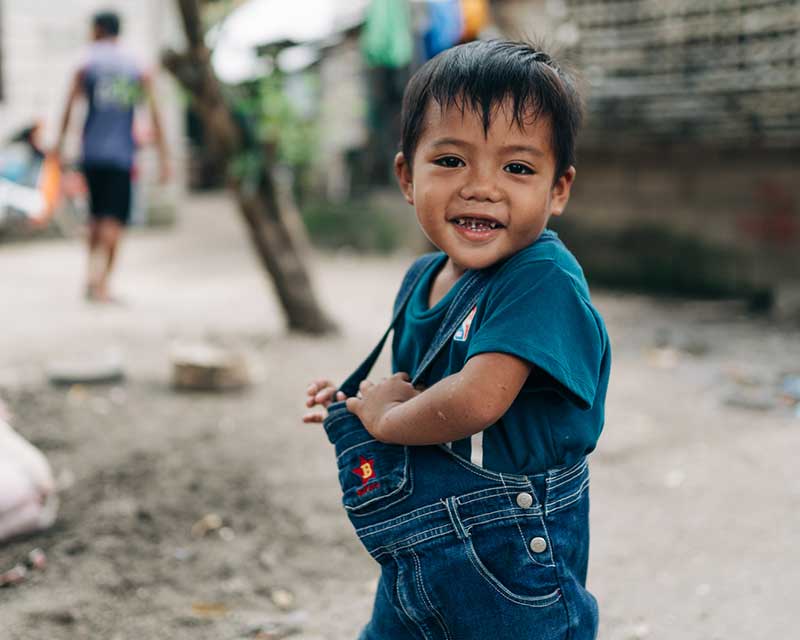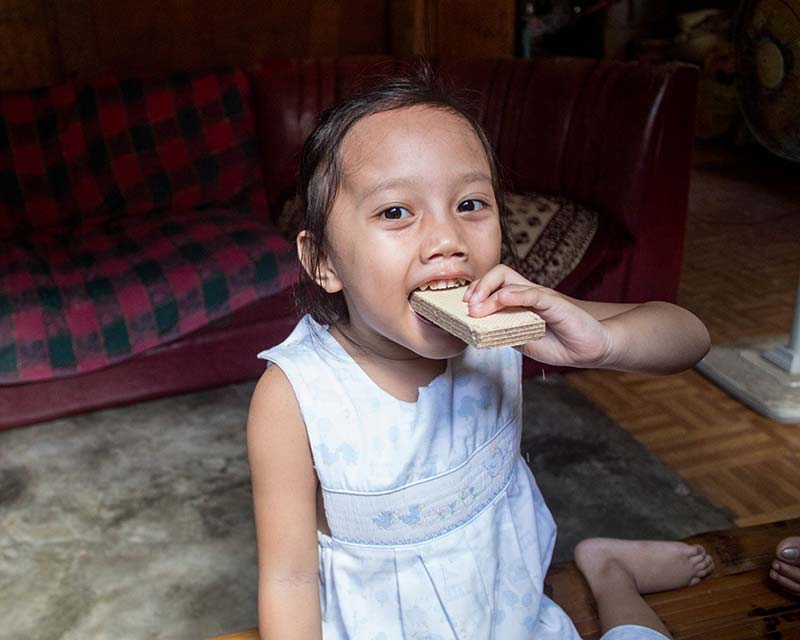Made up of more than 7,000 individual islands, the Philippines is home to a population of over 108 million people. The nation has made strong progress in poverty reduction over the past two decades, due in part to the momentum of its tourism, finance and insurance industries. However, this advancement has been significantly impacted by the COVID-19 pandemic and relentless typhoons and flooding, which have the greatest physical and economic impact on the most vulnerable people—children living in poverty.
Almost 20 million Filipinos live below the national poverty line. More than 30 per cent of children live in poverty. For these children and their families, challenges abound—including meeting their most basic needs. Many children don’t get enough nutritious food, to the extent that one in three has experienced stunting because of malnutrition. More than 2.8 million children of school age lack access to education, with indigenous children and children with a disability disproportionately affected. Eight per cent of children do not finish primary school.
The threat of online exploitation is growing, with cheap internet access making more children vulnerable to sexual and physical abuse that is livestreamed to an online audience. More than 80 per cent of children have experienced some sort of violence, including physical, psychological, sexual or online abuse. Some children are promised a respectable job but tricked into the cybersex business; others are threatened or coerced, often by neighbours, friends or even a family member. The Philippines has been identified as a global ‘hotspot’ for online exploitation due to poverty, cheap technology, high rates of English and established money-wiring services.
These challenges are made even more difficult by perennial destruction caused by tropical storms and typhoons which have become more frequent and more destructive over the past two decades. Sadly, the Philippines experiences more natural disasters than any other country. Moreover, it is usually the poorest households who are the most vulnerable and the least able to rebuild and recover from the devastation.
Yet Compassion's local church partners are committed to sharing God's love with their local communities. They know children by name and work to meet their unique needs so they can know a future free from poverty.
READ MOREkeyboard_arrow_down
READ LESSkeyboard_arrow_up





